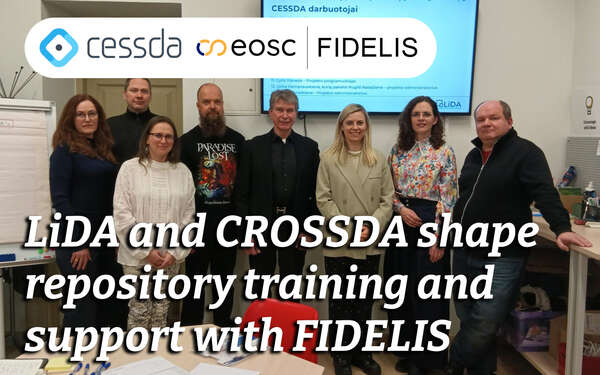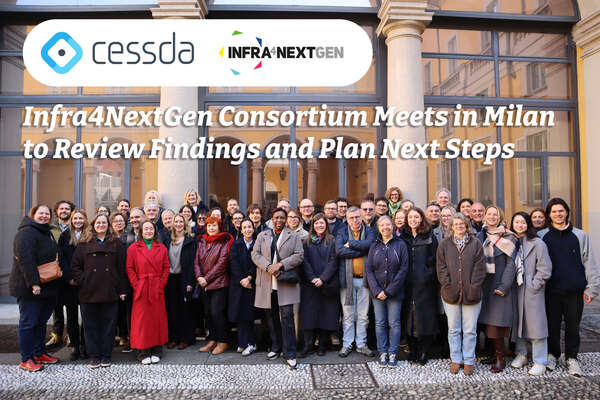News
News from CESSDA

LiDA and CROSSDA shape repository training and support with FIDELIS
Through its training and support programme, the FIDELIS project is helping repositories across Europe strengthen their trustworthiness and capabilities. Among the participants of the pilot round were LiDA and CROSSDA, two CESSDA Service Providers that engaged with different strands of the pilot to advance certification readiness, test new assessment tools, and contribute feedback shaping FIDELIS’s future training offer.

FIDELIS TDR Network introduces the set up of Special Interest Groups
Addressing the Needs of Europe’s Trusted Digital Repositories: New Special Interest Groups in the FIDELIS TDR Network.

First versions of harmonised data from I4NG now available
As part of the Infra4NextGen project, harmonised datasets for each of the five themes have been published for the first time on the NextGen Harmonised Data Gateway.

30 Years with the UK Data Archive and CESSDA: Sharon Bolton
After many years at the UK Data Archive and a long association with CESSDA, Sharon Bolton is retiring with a strong sense of gratitude and pride in what has been achieved over three decades of work in data curation and international collaboration. In this article, she summarises her career in her own words.

Infra4NextGen Consortium Meets in Milan to Review Findings and Plan Next Steps
The Infra4NextGen (I4NG) consortium met in Milan on 20–21 January 2026 for its latest in-person meeting, hosted by the Department of Social and Political Sciences at the University of Milan. Bringing together representatives from across the project, the meeting focused on reviewing recent research findings, coordinating future activities, and strengthening the dissemination of project outputs at both European and national levels.

CESSDA Main Office hiring for three positions!
The CESSDA Main Office is expanding its team with three new positions. Apply now for a position as Legal Officer, Project Manager, or Technical Officer.